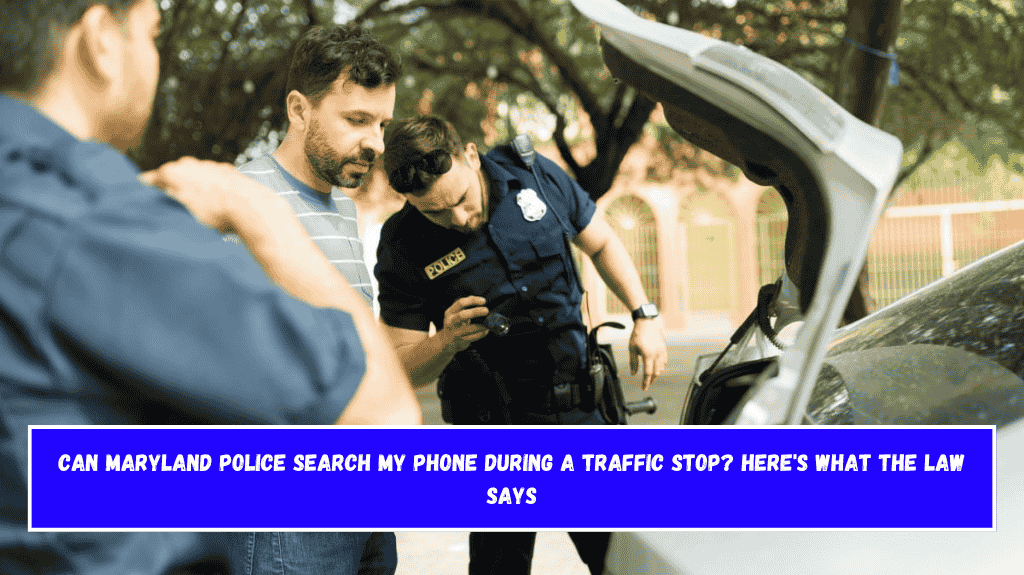In Maryland, police generally cannot search your phone during a traffic stop without a warrant, but there are exceptions and specific circumstances where searches may be permissible. Here’s what the law says:
General Rule: Warrant Required
- The Fourth Amendment to the U.S. Constitution protects against unreasonable searches and seizures, meaning police need a warrant to search your phone. This was reinforced by the Supreme Court’s decision in Riley v. California (2014), which requires law enforcement to obtain a court order before accessing the contents of a cellphone.
Exceptions to the Warrant Requirement
- Consent: If you voluntarily give police permission to search your phone, they can access its contents without a warrant. However, you are not obligated to consent, and it is generally advised not to do so.
- Probable Cause and Exigent Circumstances: Police may seize and search your phone without a warrant if they believe evidence on the device is at immediate risk of being destroyed or erased. For example, if officers suspect a crime is actively being committed and that evidence on the phone might disappear, they may act without prior judicial approval.
- Search Incident to Arrest: While police can seize your phone if you are arrested, they cannot search its contents without obtaining a warrant. This ensures that personal data remains protected unless a judge authorizes access.
Limitations on Searches
- Particularity Requirement: Maryland courts have ruled that warrants for cellphone searches must be specific to the crime under investigation. Police cannot conduct blanket searches of all data on the phone; they are limited to accessing information directly relevant to their case.
- No Forced Unlocking: Under current legal precedent, law enforcement cannot compel you to unlock your phone using passcodes, fingerprints, or facial recognition unless specifically authorized by a warrant.
What You Should Do During a Traffic Stop
- Know Your Rights: You are not required to hand over your phone or provide access unless there is a valid warrant.
- Refuse Consent Politely: If asked to allow a search, you can respectfully decline by stating, “I do not consent to any searches.”
- Seek Legal Advice: If your phone is seized or searched unlawfully, consult an attorney immediately to challenge any potential violations of your rights.
While Maryland police need a warrant to search your phone during a traffic stop, exceptions like consent or exigent circumstances could apply. Understanding these rules helps protect your privacy and ensures that any searches conducted are lawful.
Sources
- https://www.marylandcriminallawyer-blog.com/what-is-and-is-not-proper-justification-for-a-maryland-traffic-stop-based-on-a-drivers-use-of-cell-phone-while-driving/
- https://www.govtech.com/public-safety/can-police-search-your-phone-during-a-traffic-stop
- https://www.careylawoffice.com/2022/09/26/maryland-court-rules-authorities-must-limit-cellphone-searches/
- https://jamescrawfordlaw.com/insights/blog/criminal-defense/when-can-police-search-your-phone-in-maryland
- https://www.wiley.law/newsletter-September-2022-PIF-Maryland-Court-of-Appeals-Updates-the-Particularity-Standard-for-Cell-Phone-Searches-as-US-Courts-Develop-New-Doctrines-for-Electronic-Evidence
















Leave a Reply